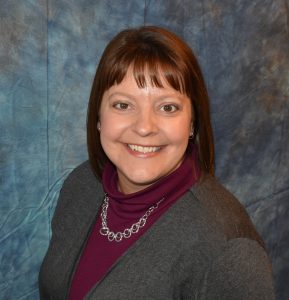Tracy Schreifels, MS, LMFT, IMH-E® (IV), is a therapist, reflective consultant, and Executive Director for Ellison Center, a non-profit early childhood mental health agency in the St. Cloud area. Schreifels teaches in the marriage and family therapy program at St. Cloud State University and is the co-chair of the Advisory Board for the Minnesota Association for Children’s Mental Health – Infant and Early Childhood Division. In addition to teaching CEED online courses, Schreifels authored two of CEED’s self-study modules: A Guide for the Guide: The “How” of Reflective Supervision and The Plot Thickens: Reflective Supervision for Groups. In this Q & A, she discusses A Guide for the Guide.

Who would benefit from enrolling in this module?
Tracy Schreifels: This module is designed for professionals who are preparing to provide reflective supervision, either as supervisors or as consultants. In order to work as providers of reflective supervision, professionals should have a solid foundational understanding of the principles of infant and early childhood mental health. They should also be receiving ongoing reflective supervision. This module will help them marshal that knowledge and experience to transition to providing reflective supervision.
This module would also be useful for those who are moving their reflective supervision practice to a virtual format. I’d add that even when one has been providing reflective supervision for a while, revisiting the topics in this course could be helpful in refining that practice.
What reflections did you have while building the content for this module?
I always enjoy getting back into the literature around the dynamic and growing field of infant and early childhood mental health. As I explored the content and topics for this module, I found myself reflecting on the ways in which I initiate reflective supervision with those to whom I provide it. Reviewing content also made me more intentional and more aware of why I do what I do when I am getting started with a new supervisee. So although this module is called “The ‘How’ of Reflective Supervision,” I thought a lot about the “why” as well!
Preparing this module also prompted me to look back at how I learned to provide reflective supervision and how much the field has changed since that time. When I was being mentored on providing reflective practice, there wasn’t much research that we could draw upon to guide that process. It is amazing how much the field has grown in the past 10 years!
What drew you to the work that you do?
I was drawn into this field through amazing mentors. I have always had a passion for working with young children, so I earned a degree in child and family studies and worked as a preschool teacher. At one point, the agency I worked for as a teacher brought in a reflective consultant to support us in our work. I looked forward to our monthly sessions, but when the grant funding ended, so did our reflective practice. I decided to go to graduate school to earn my master’s degree in marriage and family therapy. I knew that I wanted to specialize in the field of infant and early childhood mental health.
What are the top three takeaways that you hope students come away with from your module?
First, I want participants to leave this module with more competence and confidence in establishing reflective supervision as a supervisor or as a consultant.
Second, I hope that those providing reflective supervision can find comfort in the rupture and repair process that happens in these relationships.
Third, I hope that offering virtual reflective supervision will feel less daunting with the supports and resources offered in the module.
Would you like to share any additional thoughts?
We are never done learning. Professionals need the supportive relationships that are developed in reflective supervision. Those relationships support the professionals themselves as well as the children and families they work with. I hope that module participants enjoy the content and allow themselves to reflect and process as they work through it!
Related subjects
Tags: infant and early childhood mental health, professional development, reflective practice, reflective supervision, self-study modules, staff and faculty

